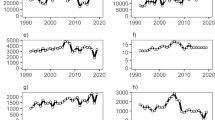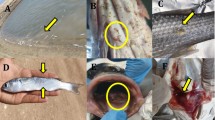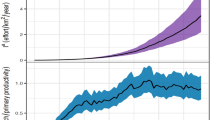Abstract
BASHFORD DEAN'S “Bibliography of Fishes” records an anonymous work entitled “Dit Boecxken leert hoe men mach voghelen vanghen metten handen. Ende hoe men mach visschen vangen metten handen. Ende oeck andersing. Ende oeck tot wat tyden vanden iare dat een yeghelyck visch tsynen besten is. Hier eyndet een boecxken dat seer profiteliick is voor allen visschers, ende vogheleers” and published at Antwerp in 1492 as the earliest known work on angling. In 1872, Alfred Denison, as editor, published “A literal translation into English of the earliest known book on fowling and fishing, written originally in Flemish and printed at Antwerp in the year 1492”. The editors of Dean's “Bibliography of Fishes” have supplied the following useful information concerning another earlier book on angling: “This Flemish tract appears to have priority over the ‘Boke of St. Albans’, as far as fishing is concerned; that is, as a printed book. There are a number of early German versions, appearing under the title of ‘Büchlin’ or ‘Fischbüchlin’, published between 1552 and 1700. One of these is included in the Fischbach of Gregory Mangolt, published at Zurich in 1598. Three other editions are known: one in 4°, without place or date, having an identical title; the other, slightly changed in verbiage, in 1583 without place; and the third in 1584.”
Similar content being viewed by others
Article PDF
Author information
Authors and Affiliations
Rights and permissions
About this article
Cite this article
HORA, S. A Sanskrit Work on Angling of the Early Twelfth Century. Nature 167, 778 (1951). https://doi.org/10.1038/167778a0
Issue date:
DOI: https://doi.org/10.1038/167778a0
This article is cited by
-
Mahseer (Tor spp.) fishes of the world: status, challenges and opportunities for conservation
Reviews in Fish Biology and Fisheries (2019)
-
Review of the Art and Science of Indian Mahseer (Game Fish) from Nineteenth to Twentieth Century: Road to Extinction or Conservation?
Proceedings of the National Academy of Sciences, India Section B: Biological Sciences (2014)



